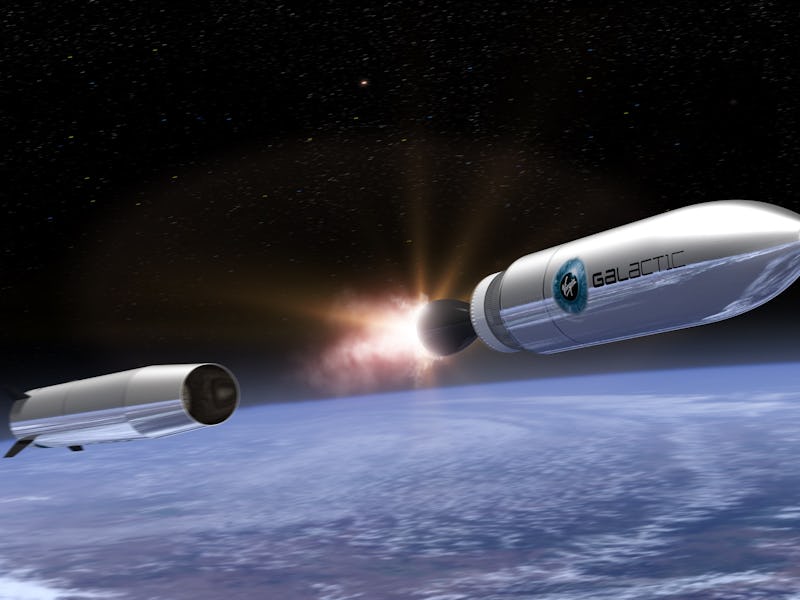Virgin Galactic's New Cargo Ship Brings It Into the New Private Space Race
The craft will bring small satellites into low Earth orbit

Billionaire Richard Branson’s company Virgin Galactic has announced that it’s making modifications to its rocket to allow bigger payloads. Previously, Virgin was mostly focused on commercial space flights that would bring tourists on trips to space. The move to increase cargo space now positions the company to be able to launch small satellites as well as maintain its focus on space tourism.
It also puts Virgin in direct competition with another private spaceflight company, Elon Musk’s SpaceX, making this the beginning of a private space race that’s just heating up.
Virgin’s LauncherOne will now allow the company to load up to 400 kilograms of freight to bring to low orbit Earth. Virgin plans to use its new load capacity for 39 launches funded by OneWeb, a company planning to set up a low orbit network of satellites to provide global internet broadband service. They also plan to use the space to carry government satellites that need to hitch a ride to the upper reaches of the atmosphere and beyond.
While Virgin is trying to get into the space cargo business, SpaceX is beating them by a wide margin. The new 400 kg payload pales in comparison to SpaceX’s [Falcon Heavy](http://www.spacex.com/falcon-heavy_ set to launch next year. Set to be the most powerful operational rocket in the world, Falcon Heavy will have the ability to carry over 53 metric tons — over 52,000 kg larger than the LauncherOne. SpaceX’s current standard craft, the Falcon 9, which can still currently carry a payload of over 13,000 kg to low Earth orbit, trouncing Virgin’s relatively smaller size as well.
Artist's rendition of the LauncherOne launching satellite into low Earth orbit.
The area that could separate the two, if Virgin is able to progress quickly enough to match SpaceX’s capacities, would be their disparate launch methods. SpaceX is launched like a stereotypical NASA Apollo rocket, while Virgin’s craft is ferried by huge airplanes and then launched from the upper atmosphere. The latter method allows for easier troubleshooting and alleviating launch limitations.
But it’s baby steps by Virgin Galactic at this point. Their LauncherOne doesn’t even begin its testing phase until 2017, while SpaceX has already established its supremacy for space cargo flights and has dominated that area. It’s obvious why Virgin would want to try getting in on that area as the two — and Boeing, trailing far behind — would want to match each other in a new space race. But for Virgin it may just be too little too late.